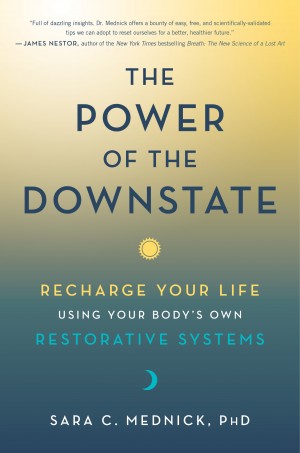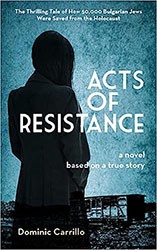To celebrate the publication of her teen nonfiction book, For the Good of Mankind?: The Shameful History of Human Medical Experimentation (Lerner Publishing Group), Vicki Oransky Wittenstein is traveling around the web on a blog tour. Today’s stop is the JBC’s ProsenPeople. Below, she discusses her research for the book and how she came to better understand the complex issues surrounding human medical experimentation:
 When I first started researching the topic of human medical experimentation, I knew that the Nazi experiments would play a critical role in the book. I was worried. I had never spoken to a Holocaust survivor before, let alone someone who had been a victim of brutal experimentation. Even the thought of reading the details of the experiments upset me. I had visited the U.S. Holocaust Memorial Museum in Washington, D.C. several years ago, and had been shaken with disgust and disbelief. How was I going to write about this topic for younger audiences if I, an adult, couldn’t even stomach the horror?
When I first started researching the topic of human medical experimentation, I knew that the Nazi experiments would play a critical role in the book. I was worried. I had never spoken to a Holocaust survivor before, let alone someone who had been a victim of brutal experimentation. Even the thought of reading the details of the experiments upset me. I had visited the U.S. Holocaust Memorial Museum in Washington, D.C. several years ago, and had been shaken with disgust and disbelief. How was I going to write about this topic for younger audiences if I, an adult, couldn’t even stomach the horror?
I started my research on the Nazi experiments by reading a wonderful book by George J. Annas and Michael A. Grodin, The Nazi Doctors and the Nuremberg Code: Human Rights in Human Experimentation (New York: Oxford University Press, 1992), a collection of scholarly essays and primary documents about the Nuremberg Doctors’ Trial, the Nazi doctors who sanctioned racial hygiene, and the importance of the Nuremberg Code in studying human rights today. Eva Mozes Kor, a twin and survivor of Dr. Joseph Mengele’s experiments on twins, wrote one of the essays in the book. With an honest voice, Eva described her terrifying journey as a ten year old from a small village in Poland to Auschwitz, and what she had endured at the hands of Dr. Mengele and other doctors at the concentration camp.
Eva was my answer to writing about this difficult subject. Her simple, clear descriptions, written with obvious pain, awakened me to several realizations. First, that anyone who could write publicly about such horror was someone who might speak to me. And second, recounting Eva’s story would be an appropriate vehicle for presenting such heinous crimes to a young audience. Young people would be able to fathom the inhumanity of the experiments through the authenticity of hearing a survivor’s voice.
With more research, I learned that Eva was the founder of the CANDLES Holocaust Museum and Education Center in Terre Haute, Indiana, where she eventually settled after World War II. Eva set up the museum to educate the world about the Holocaust and the experiments on twins.
Eva is a courageous woman. Her story of survival is remarkable. After an illness landed her in the camp’s hospital — the last stop along the path to death for most of the twin subjects — she figured out how to manipulate the thermometer, steal water, and convince the doctors that she was well enough to go back to the barracks. Many years after she and her twin sister Miriam were freed from the camp, Miriam died eventually of a kidney problem she acquired from injections administered by doctors at Auschwitz.

This photo was taken in 1945 when Auschwitz was liberated. Eva Kors is at the far right
and her twin sister Miriam is standing next to her.
After speaking to Eva and then learning about the plight of other inmates who were subjected to experimentation, I was surprised to learn how little an impact the Nuremberg Trials initially cast on medical experimentation in the U.S. It wasn’t until 1981 — in the wake of revelations about the Tuskegee syphilis experiments on African American men — that the federal government adopted the Common Rule, a set of regulations that guide research in human medical experimentation. American doctors, who believed they were experimenting for “the good of mankind,” thought that the Nazi atrocities were not relevant to their work. But while experiments conducted by U.S. doctors were not comparable to the Nazi horrors, many orphans, prisoners, the mentally ill, and others with little power or voice, were subjected to experimentation without voluntary consent for hundreds of years.
After interviewing several prominent bioethicists, I have come to better understand the complex issues surrounding human medical experimentation. For centuries, physicians have tested treatments, vaccines, and medicines on people. Without a doubt, new medical discoveries and technologies require human experimentation. The difficult challenge lies in balancing the individual’s risk of injury with the needs of society.
Today, Eva spreads the word that scientific advancement must never be a justification for sacrificing human dignity. She lectures around the world, leads tours at Auschwitz, and reaches out to twin survivors. I felt honored to recount her story in my book.
Vicki Oransky Wittenstein has always been curious about new ideas, people, and places. That curiosity has taken her life in many different directions. So far, she has been a student, a criminal prosecutor, a writer, and an advocate for children and families. She is the author of a number of science and history articles for young readers, as well as the book Planet Hunter: Geoff Marcy and the Search for Other Earths, which won the 2013 Science Communication Award from the American Institute of Physics. She lives with her family in Brooklyn, New York. For more information, and for a free discussion guide, visit http://vickiwittenstein.com/.



